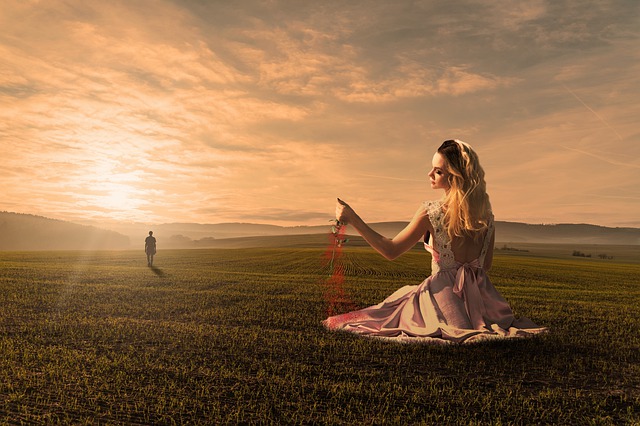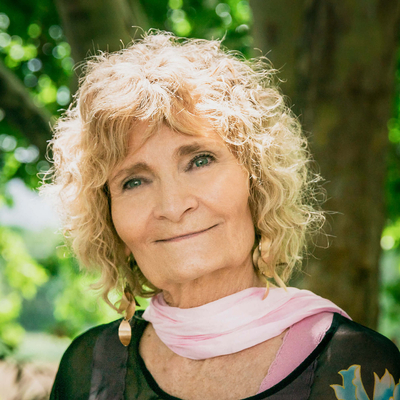I lived most of my childhood on an Apache reservation in Arizona. I grew up in a home where my mother and father had strongly-identified female and male roles, and my siblings and I benefitted greatly from our parents’ harmony with each other and in their commitment to shared spiritual ideals and family. The only pressure we felt from our parents was to become the wisest, most compassionate, and ethical women and men that we could, striving to do what was right in the eyes of the Creator.
Living on the reservation gave me opportunities to have friends who were not of my race or religion, nor of my modest, white middle-class lifestyle. My Apache friends experienced the various dynamics and circumstances that plague families living in dire poverty and racial discrimination. However, regardless of our different racial, cultural, and economic circumstances, my friends and I still shared the struggles of living in the larger dominate culture of blond, skinny Barbie dolls and the Miss America beauty pageants of white women on parade, what writer Gerald Early once so aptly described a “perfectly rendered theater in our [dominant] culture.” I grew to consider that controlling culture of Caucasian colonization (which still prevails) as greed-dominated, competition-driven, materialistic, racist, sexist, and maintained by imbalanced white males who determine the politics and social standards of our nation, and which has perpetrated the grave environmental and social ills of today.
As children and youth, we females wrestled with our own perceptions of our self-worth because of the societal messages we accepted from our peers in school, from most human institutions, from the media of the larger society, and even from grandfathers, fathers, and brothers—messages that indicated females were not as worthy as males. Still today females receive those kinds of messages; they just come in more sophisticated packages.
Especially impactful for us females in our young years was the message that if we girls were not pretty and sexy (as displayed in the various beauty pageants), we were even less worthy, and most carried this “programming” into their womanhood, which still deeply affects how they see themselves as human beings. Though there are emerging shifts in perception of females, there still remains deep within the psyche of the controlling dominant culture (as well as some other sub-cultures) the centuries-old myth of seeing women as sex objects and chattel meant to please the men in control. Too many women (and men) today still covet having the transitory physical beauty of the youthful Miss (or Mr.) America’s.
For many years I experienced an underpinning insecurity because I did not fit the widely-accepted image of beauty. As I evolved psychospiritually, rather than worrying about getting wrinkles and fretting over my graying hair or sagging bottom, I begin to strive for beauty of another kind, which is described in the beatitudes (beautiful attitudes) Jesus taught—loving service, unselfish devotion, courageous loyalty, sincere fairness, enlightened honesty, undying hope, confiding trust, merciful ministry unfailing goodness, forgiving tolerance, and enduring peace.
Within the Apache culture is a beautiful tradition that promotes self-esteem for both genders—the Sunrise Ceremony for a pubescent girl at the threshold of womanhood. This encompasses at least one year of planning and preparation, involving the whole extended family and friends of the designated girl, culminating in a three-day, coming-of-age ceremony for the entire tribe/community. In the entire process, the men have well-defined roles and the women have theirs, and they work closely together to create this spiritually-based, socially-uplifting ceremony. Ideally all persons involved can experience a sense of self and place within a loving family and community that gives the message that all individuals, female and male, are highly valued and needed.
If only this sense of personal and social “wellness” could be extended for the rest of the year, but unfortunately those three days have not yet been integrated into the whole of the culture of the reservation. Nor has the dominant culture of colonization changed enough to provide the opportunities needed for each individual (women and men), family, and society to unfold into the divine pattern of wholeness, wellness, and personality integration.
As with the coming-of-age ceremony for Apache maidens, we adults need coming-of-age experiences throughout our lives to assist us in the unfoldment into our personality integration and ability to relate to others more lovingly and respectfully. Regardless of someone’s gender or their racial, national, religious, or cultural identity, we all need to consider ourselves and each other as beloved children of the Creator and planetary citizens—true “brothers and sisters”—who have a responsibility to personally find ourselves within our own unique personalities and support one another in that process, thus becoming more whole, healed, and compassionate persons who contribute to the true progress of human civilization by helping create cultures of congruency within divine pattern.


